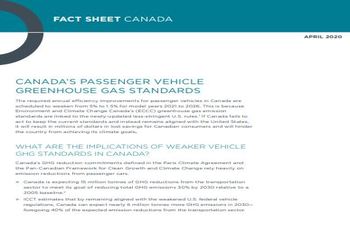Knowledge Hub

Electric vehicles (EVs) for road transport boost energy efficiency, require no direct fuel combustion and rely on electricity – the most diversified energy carrier, thereby contributing to a wide range of transport policy goals.

This report conveys information collected from EVI members and partners to analyse the global evolution of the EV market, the growth of the EV stock and the deployment of EVSE. It includes a review of policy actions on EVs and EVSE and analyses market developments in relation to changes in the policy framework.
An Interoperable Reservation System for Public Electric Vehicle Charging Stations: A Case Study in Germany
2019
Author(s): Basmadjian R, Kirpes B, Mrkos J, Cuchý M, Rastegar S
In this paper the authors derive basic requirements for building interoperable reservation systems and identify four generic approaches to reservation.

This report aims to provide an update on recent developments in EV registrations (vehicle sales), EV stock estimates (mainly based on cumulative sales), and the availability and characteristics of EVSE.
Batteries in Grid Assisting Charging Infrastructure for E-Mobility
2019
Author(s): Jahn K, Klinck C-F, Lösch S
As part of the collaborative project “Cities in Charge”, Fraunhofer Institute for Manufacturing Technology and Advanced Materials (IFAM) is investigating the possible contribution of battery storage systems for grid assisting charging of electric vehicles.
Optimise Supply Chains to Manage Freight Transport Emissions for Low Carbon & Sustainable Mobility in India
2020
Author(s): Federation of Indian Chambers of Commerce and Industry (FICCI)
To secure a significant improvement in overall productivity and efficiency of the system, future development of the network should aim to secure a better integration of the various modes of transport.
Challenges and Perspectives for the Use of Electric Vehicles for Last Mile Logistics of Grocery E-Commerce – Findings From Case Studies in Germany
2019
Author(s): Ehrler VC, Schöder D, Seidel S
Focusing on the German market and using the test case of a renowned logistics service provider who trialed e-vehicles for commercial transport, this paper discusses potential shifts in grocery shopping habits, maps out perspectives, prerequisites and challenges for a shift to electric vehicles for their distribution and derives recommendations for industry and politics based on the findings.
Chargers for Electric Cars With V2G (Vehicle to Grid) Technology – Connection Principles for the Distribution Network
2019
Author(s): Baraniak J, Starzyński J
In recent years, there has been an increase in the development of the electromobility (e-mobility) market, which directly results in the increased requirement of charging stations supplied from the public distribution network. Electric vehicles will be an integral part of the smart grid in the future.
Comparative Analysis of the Energy Consumption, Economic Cost and Environmental Impact Between Fossil and Electric Buses in the Public Urban Transportation of the City of Ambato, Ecuador
2019
Author(s): Ríos A, Vargas C, Guamán J, Otorongo M
This article describes urban transportation system based on information obtained from operation contracts of the transport cooperatives in Ambato’s city in Ecuador. In Ecuador, the City of Ambato has a public transport system which dependents exclusively on oil derivatives.

Canada’s Passenger Vehicle Greenhouse Gas Standards
2020
Author(s): International Council on Clean Transportation (ICCT)
The required annual efficiency improvements for passenger vehicles in Canada are scheduled to weaken from 5% to 1.5% for model years 2021 to 2026.



